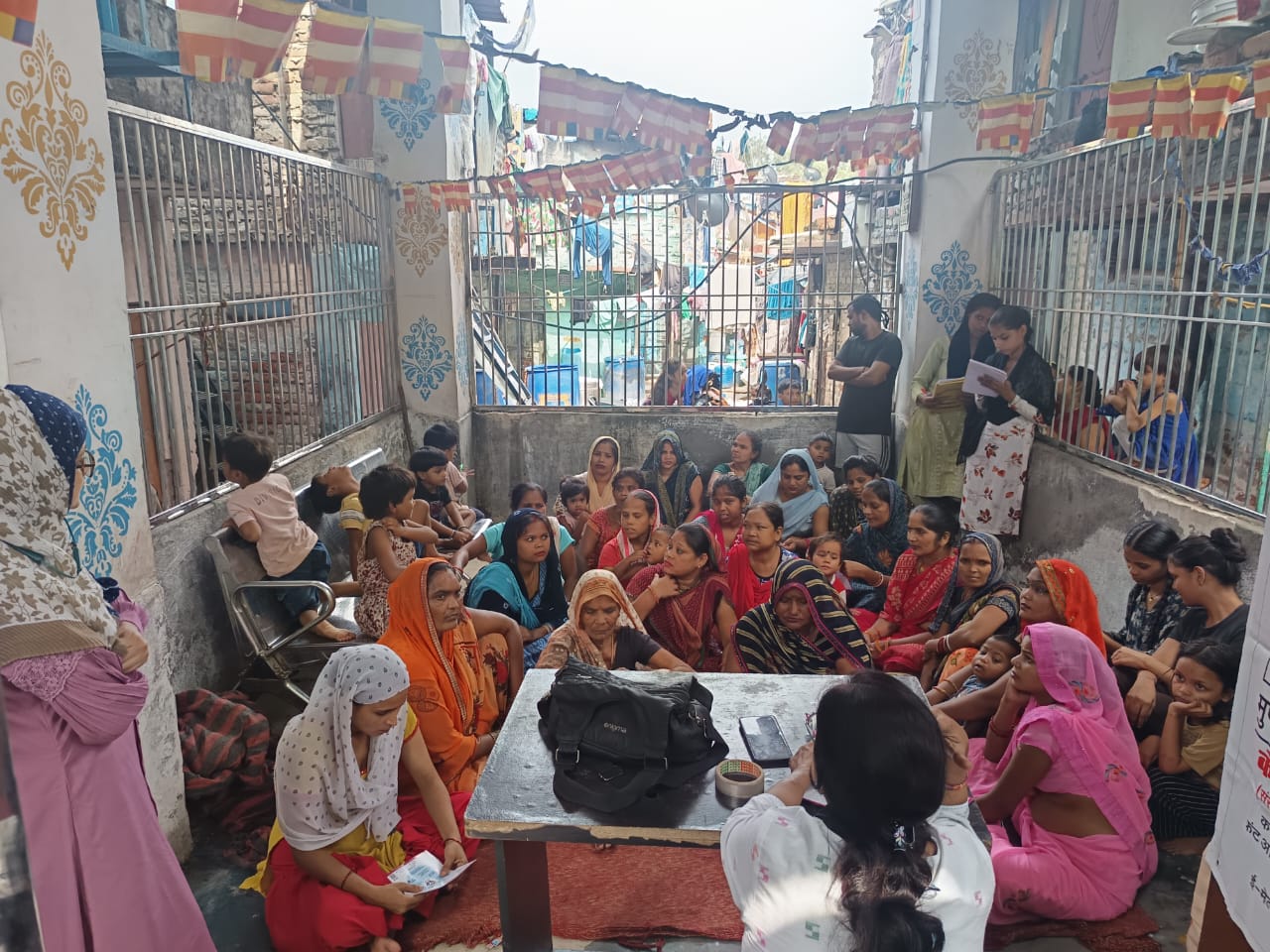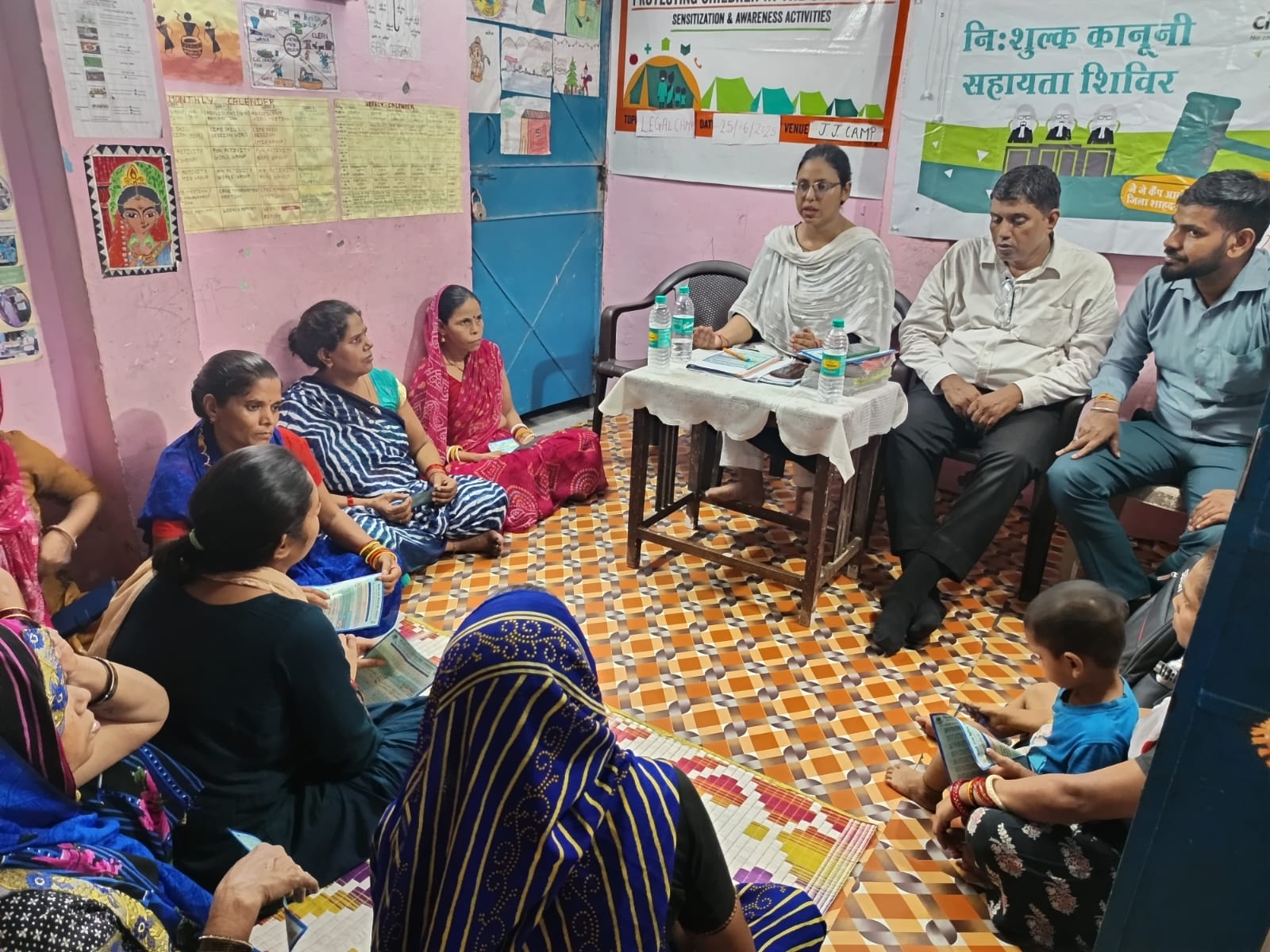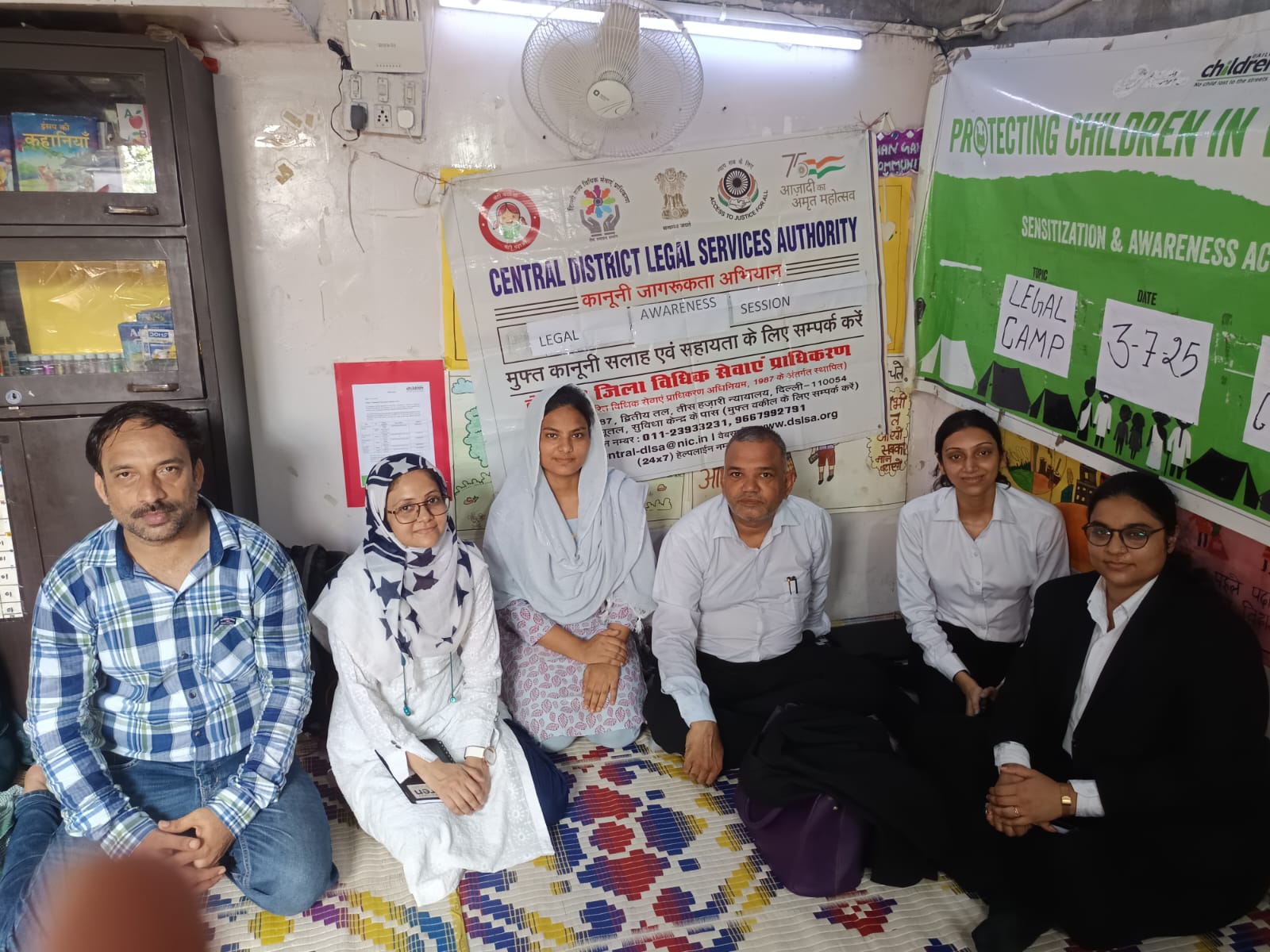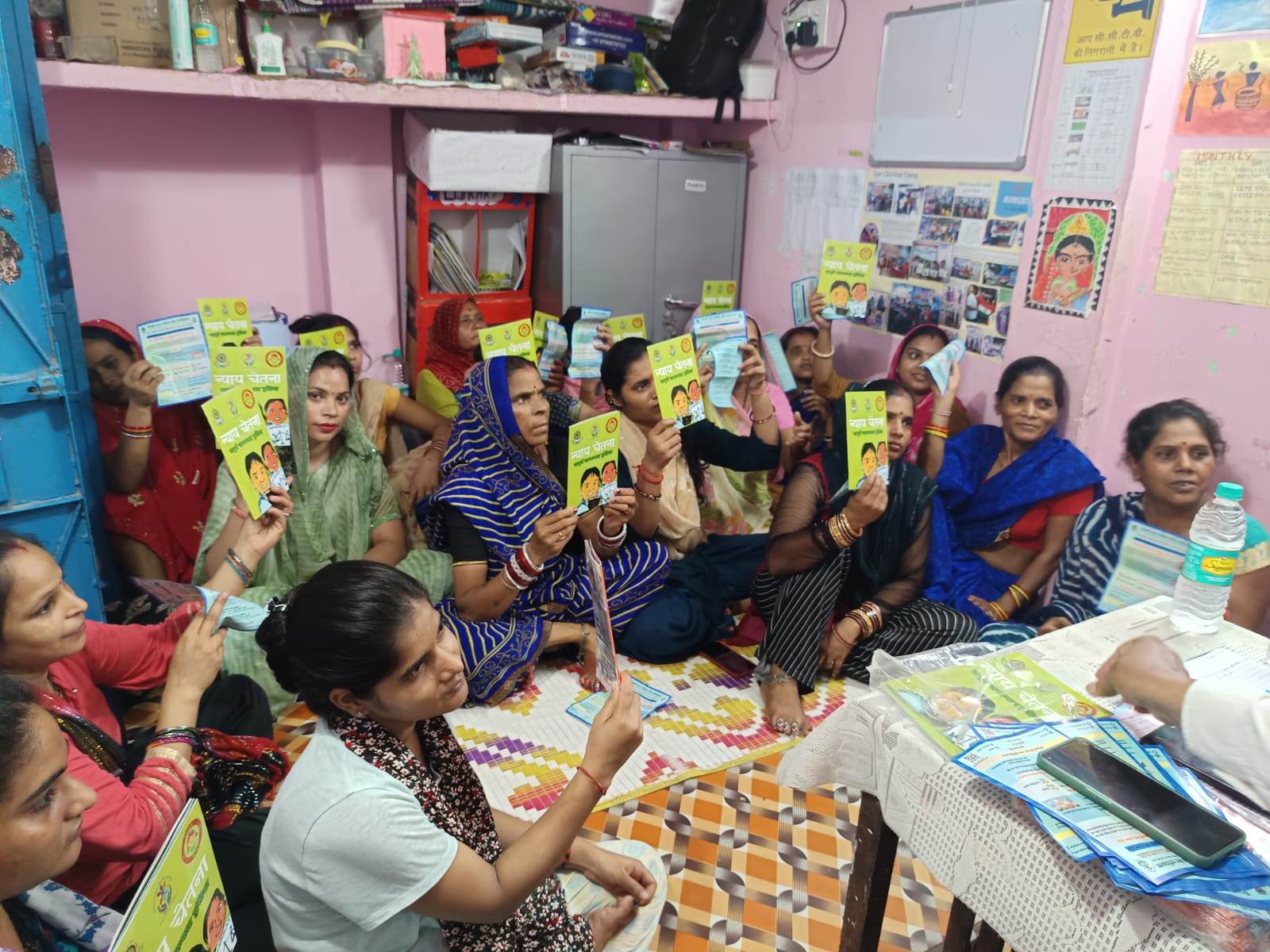In the bylanes of some of Delhi’s impoverished neighbourhoods skirting railway stations, Legal Awareness Camps are changing the course of legal literacy one session at a time. Organized by Railway Children India (RCI) in collaboration with the District Legal Services Authority (DLSA), these camps are bringing legal aid to mothers and adolescents.
Let’s deep dive into the motivation, partnerships, process, and impact of Legal Aid Camps in the words of Program Officer, Tawakkul Khan, and telling images from the field.
Why legal camps?
“It became evident to us that many people didn’t even know what rights they had,” shares Tawakkul. “From domestic violence to land disputes, or even just how to get a birth certificate, so much of the community’s struggle stemmed from legal illiteracy.”

The objective was clear: create a safe and approachable platform where vulnerable families, especially women and children, could understand the laws meant to protect them.
Community Response
“At first, people were hesitant. They associated anything ‘legal’ with police or court,” Tawakkul explains. “But once they saw the camp was supportive, questions started pouring in.” The curiosity was real and valid. At Kishanganj, questions revolved around identity documentation for children. At JJ Camp, women raised concerns around property rights, child marriage, and the right to reside in the marital home.

Dayabasti Camp & RCI’s Follow-Up
Two cases of domestic violence surfaced during the Dayabasti camp, where Advocate Sarika ji offered legal guidance, helping survivors understand how to file an FIR and where to seek ongoing support. However, the needle-moving aspects here are the follow-up and home visits that mobilizers conduct to support survivors.
“These camps are not just events,” Tawakkul stresses. “We stay connected through our field teams. We ensure survivors are not alone in taking the next step.”
Kishanganj Camp and the ‘Sathi Campaign’
Advocate Rupesh Sharma from Tis Hazari Court addressed the crowd, introducing the legal helpline 1816 and the Sathi Campaign by NALSA – a vital initiative that helps parents secure missing documents for their children.

“Our mobilizers began filling out the Google forms right there to help families apply,” Tawakkul shares.
Focus on Women’s Rights at JJ Camp
With 24 women present, the session was led by Advocate Puvali Singh from Karkardooma Court, who covered a wide range of laws, including the Domestic Violence Act, POCSO, and child labour protections. Tawakkul recalls: “What stood out wasn’t just the information; it was the sense of relief and clarity the women expressed after learning they did have legal options.”

What’s Next?
Follow-up camps are already in the works for Dayabasti and Tulsi Nagar, with a renewed focus on domestic violence and child protection laws. Tawakkul believes the real transformation lies in continuity.
“Legal education shouldn’t be a one-time thing. We need school involvement, more local leaders, and creative formats like street plays to make this ongoing.”
It’s About Dignity and Justice
At its core, this initiative isn’t just about laws and rights. It’s about dignity, protection, and empowerment. Every question asked, every document applied for, and every woman who finds her voice marks a shift toward a more just and aware community.









